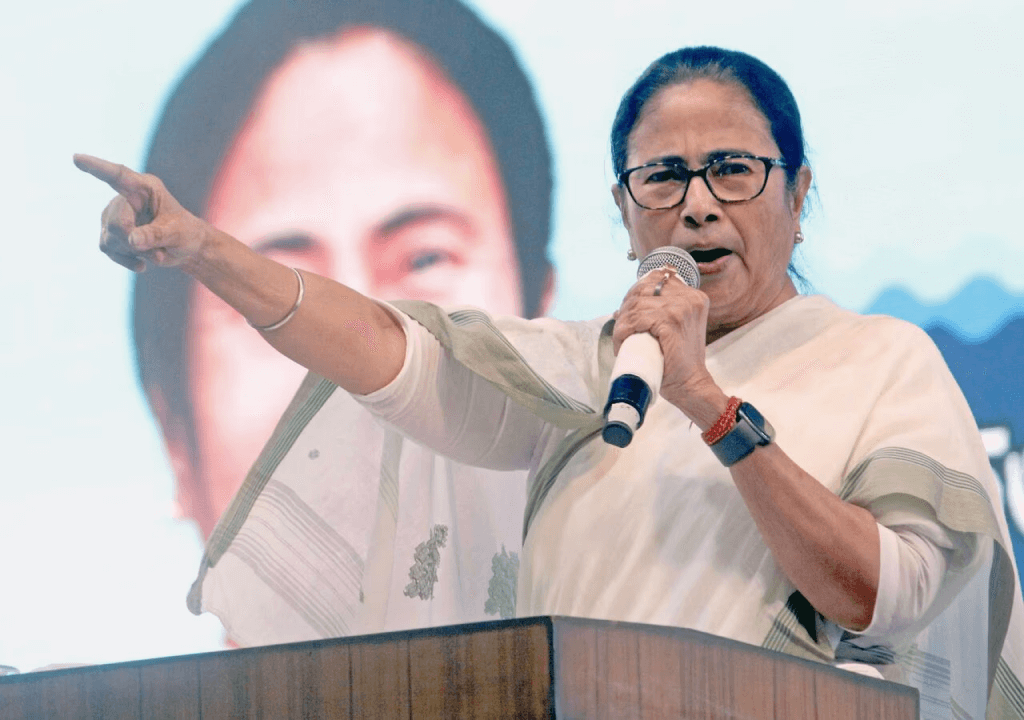Indian Election 2024: Can Trinamool Congress Save their Fortress?

The All India Trinamool Congress (AITC), ranked as the third-largest party in the Indian Parliament, is bracing for a crucial moment. In their bastion of Bengal, they confront a formidable challenge from the BJP, with exit polls hinting at potential setbacks in a state pivotal to the Lok Sabha. A stumble in the impending general election could spell the loss of power for Trinamool Congress in the Bengal state assembly. Despite recent setbacks and a narrowed focus on Bengal, Tripura, and Meghalaya, the party is mustering all its resources for the upcoming polls. Led by the steadfast Mamata Banerjee, they are contesting all assembly seats independently, aiming for maximum representation. Their goal is unequivocal: to emerge as the leading opposition force against the Bharatiya Janata Party (BJP) and reclaim their national standing, irrespective of the prevailing sentiment in opinion polls.
Ahead of the election announcement, the Trinamool Congress has introduced its full roster of 42 candidates in Bengal. Spearheading the election campaigns is the formidable Mamata Banerjee, Chief Minister of Bengal. Among the candidates are ousted MP and charismatic female leader Mahua Moitra, alongside former cricketer Yousuf Pathan.
In order to challenge the BJP on the national level, Mamata Banerjee and the All India Trinamool Congress (AITC) have taken the lead in building the opposition alliance I.N.D.I.A. But because of disputes over seat sharing, AITC is running unaffiliated with I.N.D.I.A parties like the Indian National Congress and the Communist Party of India in West Bengal. The opposition has expressed shock and dissatisfaction at this move, although Trinamool has defended its position by emphasizing the state’s real circumstances. The difficult relationship between the Indian National Congress has been exacerbated by AITC’s refusal to give up more seats, particularly outside Bengal. Furthermore, even if AITC and Communist Party of India (Marxist) (CPI(M)) oppose the BJP together, their long-standing animosity that dates back to decades makes any potential partnership difficult to achieve. As a result, Mamata Banerjee has decided to run the election alone.
The party gains its strength from robust support from the Muslim community and secular voters. Within the state, there exists a significant Muslim demographic, with many constituencies having a Muslim majority. There’s apprehension among the Muslim populace regarding the potential third term of Hindu nationalist Narendra Modi. A sizable portion of the Muslim population hails from neighboring Bangladesh and may have migrated illegally. BJP’s stance advocating for their exclusion from the country has instilled fear within this community, prompting them to rally strongly behind Mamata, who is vocally critical of the BJP despite having allied with them in the 1990s. The consolidation of Muslim votes is poised to grant AITC approximately 30 seats, maintaining the state government under their control, with all administrative machinery functioning in their favor. AITC also benefits from the support of certain criminal elements involved in politics, further bolstering their position. Instances of intimidation by these elements against BJP and other opposition party workers, as well as the general populace, contribute to a climate of fear that could translate into votes for AITC.
Negative factors are increasingly stacking up against the All India Trinamool Congress (AITC). There’s growing discontent surrounding Mamata Banerjee’s third term as Bengal’s Chief Minister, exacerbated by concerted efforts from the BJP. Anti-Muslim rhetoric is gaining traction, coupled with narratives depicting the plight of Hindus and the comparative progress of BJP-led states. Additionally, historical notions of Bengal’s former glory are being invoked. The Sandeshkhali incident, a widely publicized event implicating Trinamool leaders in serious crimes including rape, has tarnished the government’s image. Internally, AITC faces dissatisfaction over allegations of corruption, criminal activities, and the perceived nepotism in grooming Mamata’s nephew as her successor. The Hindu vote is consolidating, while the Muslim vote risks fragmentation due to disunity among AITC, INC, and CPI(M), further undermining AITC’s position.
If the upcoming election deals a blow to AITC, the party’s future hangs in uncertainty. Considering the electoral patterns in the state, a setback could potentially entrench a prolonged period of struggle for the party in subsequent elections. BJP’s steady ascent, evidenced by their increase in seats from 2 to 18 within just five years, instills hope and garners support in the state, as indicated by opinion polls. Thus, AITC must carefully assess its standing and adapt accordingly. Despite receiving backing from the government in Bengal and maintaining relevance in national politics, AITC lacks clear ideologies and positions, which may alienate Muslim voters, leading to the party’s collapse. However, if Mamata Banerjee defies opinion polls and electoral analyses, staging a comeback as the savior of the opposition and Muslims, it could mark a resurgence for AITC, potentially expanding its influence nationally. The stakes are undeniably high for AITC in the upcoming crucial game of politics.




